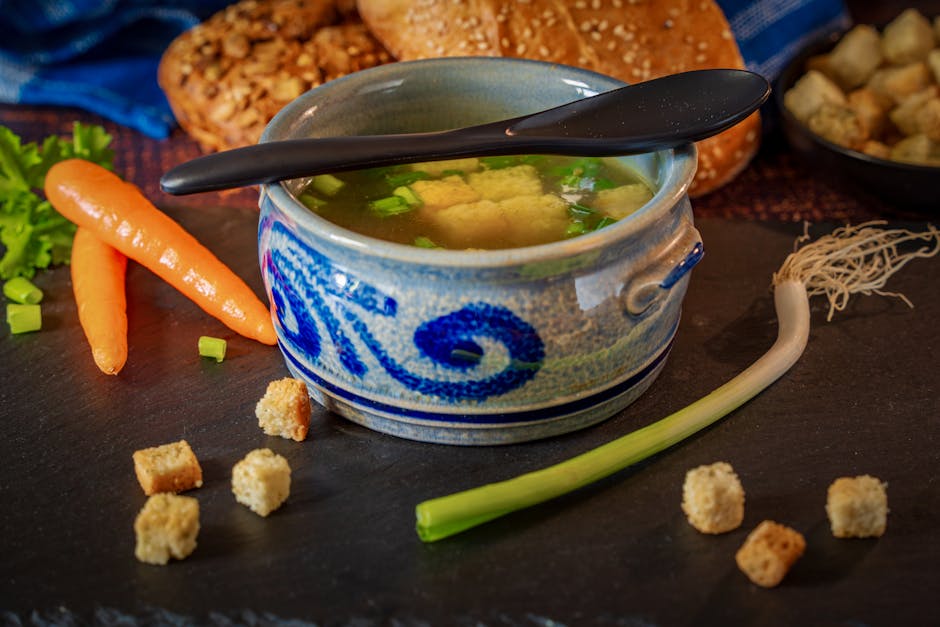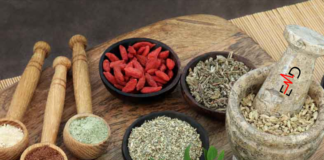Exercise Daily _ Natural Remedies For Bloating After Meals
Bloating after meals is a common complaint that affects many individuals, often leading to discomfort and frustration. While there are various over-the-counter medications available, many people are increasingly turning to natural remedies for relief. This article delves into the effectiveness of natural remedies for bloating after meals, presenting evidence-based insights while also addressing common misconceptions. By the end, you will have a clearer understanding of what works, what doesn’t, and how to approach bloating holistically.
Understanding Bloating: The Basics
Bloating is characterized by a feeling of fullness or swelling in the abdomen, often accompanied by distension. This condition can result from a variety of factors, including dietary choices, digestive issues, and even stress. According to the National Institutes of Health, bloating can also be a symptom of underlying gastrointestinal disorders such as irritable bowel syndrome (IBS) or food intolerances.
Common causes of bloating include:
- Overeating or eating too quickly
- Consumption of gas-producing foods (e.g., beans, lentils, carbonated drinks)
- Food intolerances (e.g., lactose, gluten)
- Swallowing air while eating or drinking
- Gut bacteria imbalance
Understanding the root cause of bloating is essential before exploring natural remedies. Many people mistakenly believe that bloating is solely a dietary issue, overlooking other factors such as stress and gut health. This article aims to clarify these misconceptions and provide a comprehensive approach to managing bloating.
Natural Remedies: What Works?
When it comes to natural remedies for bloating, numerous options exist. However, the effectiveness of these remedies can vary from person to person. Below, we’ll examine some popular natural remedies, supported by scientific evidence.
Ginger: A Time-Honored Solution
Ginger has been used for centuries as a remedy for digestive issues, including bloating. Studies suggest that ginger may help speed up gastric emptying, reducing feelings of fullness and discomfort. A study published in the World Journal of Gastroenterology found that ginger can effectively alleviate nausea and bloating, particularly after meals.
“Ginger is a potent anti-inflammatory agent that can help soothe the digestive tract.”
To incorporate ginger into your diet, consider making a ginger tea. Simply steep fresh ginger slices in hot water for about 10 minutes, and enjoy after meals to help alleviate bloating.
Peppermint: More Than Just Fresh Breath
Peppermint is another natural remedy that has gained popularity for its potential to relieve bloating. The menthol in peppermint can help relax the muscles of the gastrointestinal tract, which may ease discomfort. A review published in the Journal of Gastroenterology highlights peppermint’s effectiveness in treating symptoms of IBS, including bloating.
Consuming peppermint tea after meals or using enteric-coated peppermint oil capsules can be beneficial. However, caution is advised for individuals with gastroesophageal reflux disease (GERD), as peppermint may exacerbate symptoms.
Fennel Seeds: A Digestive Aid
Fennel seeds have been traditionally used to alleviate bloating and gas. Research indicates that fennel may have antispasmodic properties that can help relax the muscles in the gastrointestinal tract. A study in the Journal of Clinical Gastroenterology found that fennel oil can significantly reduce bloating and discomfort.
To use fennel seeds, chew on a teaspoon after meals or brew them in hot water to create a soothing tea.
Common Misconceptions About Natural Remedies
Despite the popularity of natural remedies, there are prevalent misconceptions that may lead individuals astray. Below, we address some of these misunderstandings.
Misconception 1: All Natural Remedies Are Safe
While many natural remedies are safe for most people, they can interact with medications or exacerbate certain conditions. For instance, ginger may increase bleeding risk in individuals taking blood thinners, while peppermint can worsen GERD symptoms. Always consult with a healthcare professional before starting any new remedy.
Misconception 2: Quick Fixes Exist
Many individuals seek immediate relief from bloating and assume that natural remedies will provide instant results. However, effective management of bloating often requires a comprehensive approach encompassing dietary changes, lifestyle modifications, and stress management. Quick fixes may not address the underlying causes.
Dietary Adjustments: A Complement to Natural Remedies
In addition to natural remedies, dietary adjustments can play a crucial role in managing bloating. Here are some strategies to consider:
- Mindful Eating: Slow down and chew food thoroughly to minimize air swallowing.
- Avoid Gas-Producing Foods: Limit intake of beans, broccoli, onions, and carbonated beverages.
- Stay Hydrated: Drinking plenty of water can aid digestion and reduce bloating.
- Probiotics: Incorporate probiotic-rich foods like yogurt or fermented products to support gut health.
Combining these dietary adjustments with natural remedies can enhance their effectiveness. For example, drinking ginger tea while practicing mindful eating may yield better results than either approach alone.
Recipe: Ginger-Lemon Digestive Tea
One of the simplest ways to utilize natural remedies is through homemade recipes. Here’s a quick recipe for a refreshing Ginger-Lemon Digestive Tea:

Ingredients:
- 1-inch piece of fresh ginger, sliced
- 1 cup of water
- Juice of half a lemon
- Honey (optional, to taste)
Instructions:
- Boil the water in a small pot.
- Add the ginger slices and let it simmer for 10 minutes.
- Remove from heat and strain the tea into a cup.
- Add lemon juice and honey if desired.
- Enjoy warm after meals to help alleviate bloating.
This soothing tea combines the digestive benefits of ginger with the refreshing taste of lemon, making it an ideal post-meal drink.
When to Seek Medical Help
While natural remedies can be effective for managing occasional bloating, persistent or severe bloating should not be ignored. It may indicate a more serious underlying condition. Symptoms that warrant medical attention include:
- Severe abdominal pain
- Persistent bloating lasting more than a few days
- Accompanied by weight loss, diarrhea, or constipation
- Changes in bowel habits
Consulting a healthcare professional can provide clarity and ensure proper diagnosis and treatment. It’s crucial not to dismiss ongoing symptoms as simply a dietary issue.
Conclusion: A Holistic Approach to Bloating
In summary, natural remedies for bloating after meals can be effective, but they should be part of a broader strategy that includes dietary changes and lifestyle adjustments. Ginger, peppermint, and fennel seeds offer promising relief, but understanding the underlying causes of bloating is essential for long-term management. By debunking common misconceptions and combining natural remedies with mindful eating practices, individuals can achieve better digestive health.
Ultimately, if you experience persistent bloating, do not hesitate to seek professional help. A comprehensive approach tailored to your individual needs will yield the best results.
These remedies are for informational purposes only. Consult your doctor and do your own research before use.
References
- National Institutes of Health: Bloating and Gastrointestinal Disorders
- World Journal of Gastroenterology: Ginger and Digestive Health
- Journal of Gastroenterology: Peppermint Oil and IBS
- Journal of Clinical Gastroenterology: Fennel Oil and Bloating
Eat daily, sleep daily, exercise daily.











